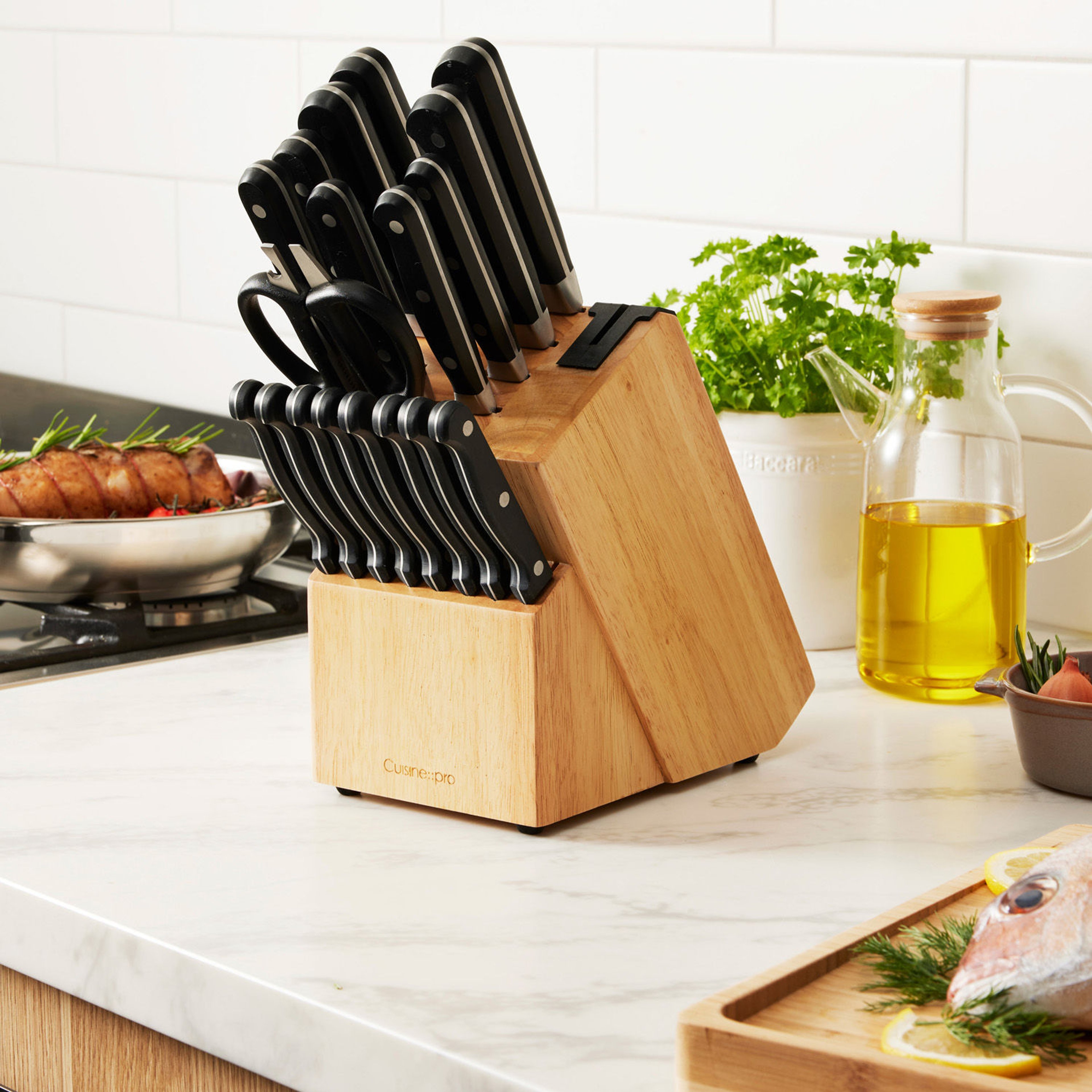Caring for your Cuisine::pro® kitchen knife
share
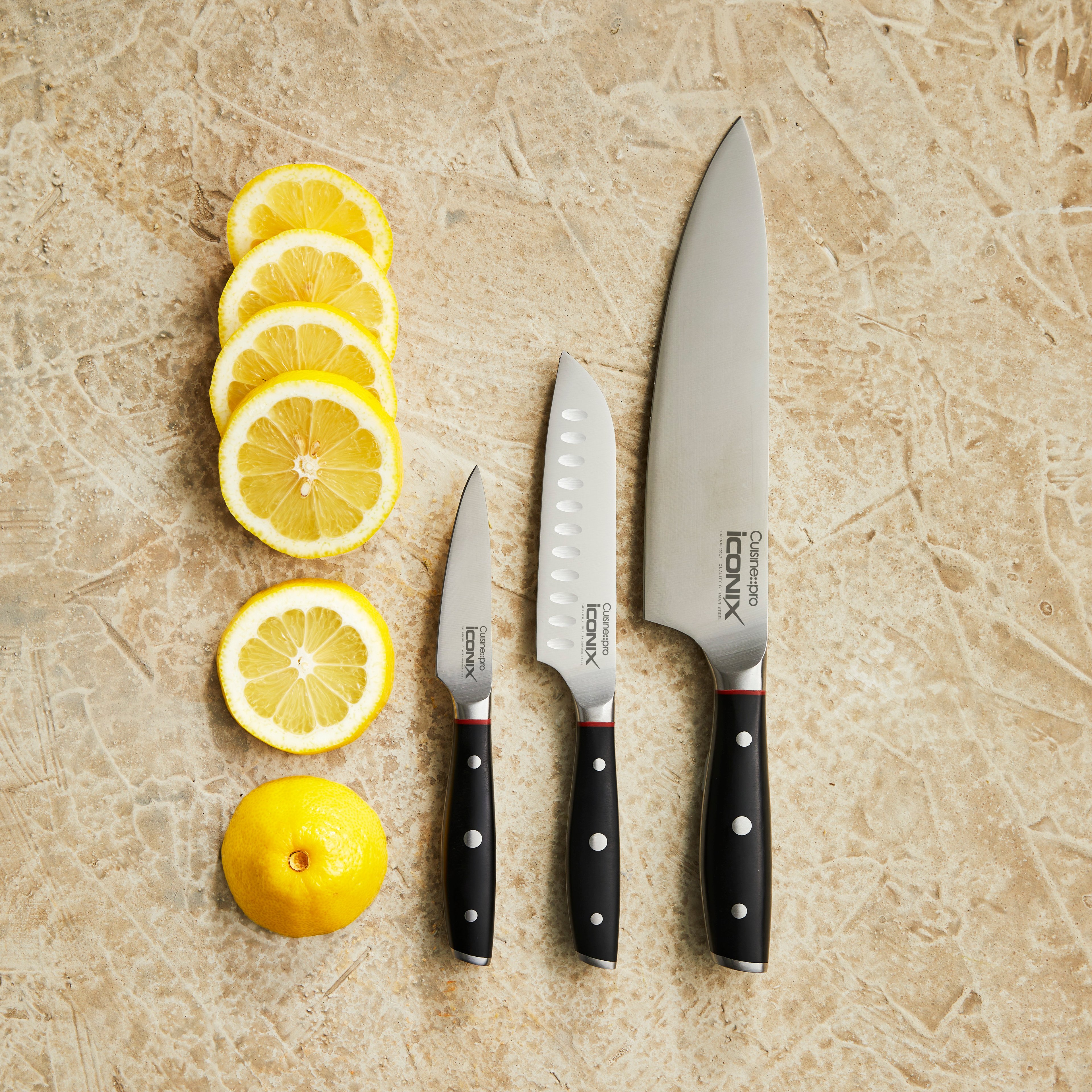
Not sure how to best look after your blades? We’re here to guide you through the confusion.
Proper Use
Kitchen knife care starts with how you use them. Each blade is designed for a specific purpose and using it for reasons beyond that purpose can contribute to damage and disintegration.
· Only use kitchen knives for their specific purpose e.g., bread knives for cutting bread, carving knives for cutting meat. Do not use your kitchen knife as a handy tool like a screwdriver, can opener, hammer, chisel, etc.
· Avoid cutting in sideways or angled motions as this will damage the blade. Run the kitchen knife up and down only.
· Watch out for hard seeds, bones, pits, etc. as cutting through them will blunt kitchen knife blades.
· Avoid using unnecessary pressure when cutting.
· Always use a good quality cutting board made of plastic or wood. Boards made of glass or marble might be easy to clean, but are too hard for kitchen knife blades.
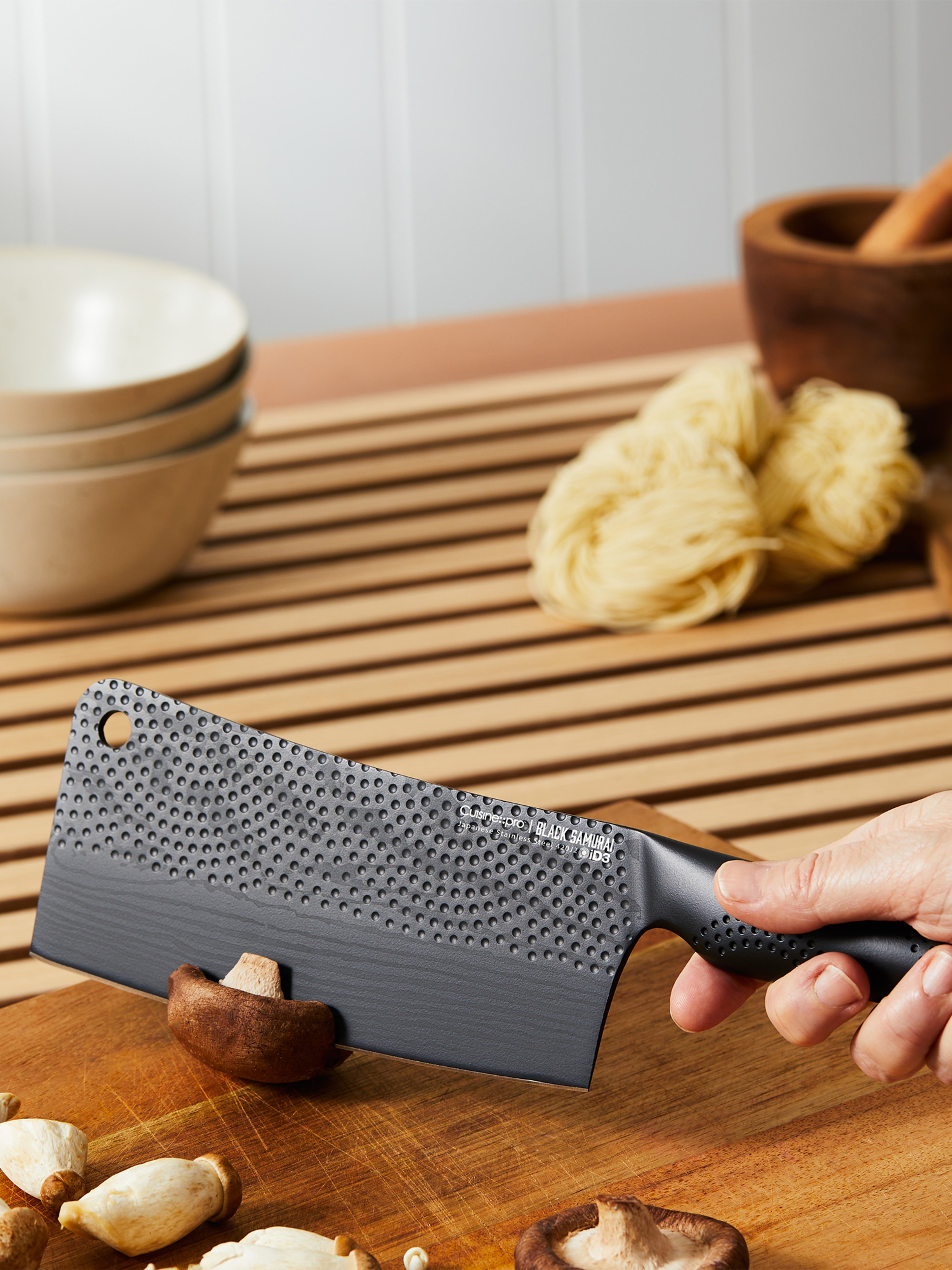

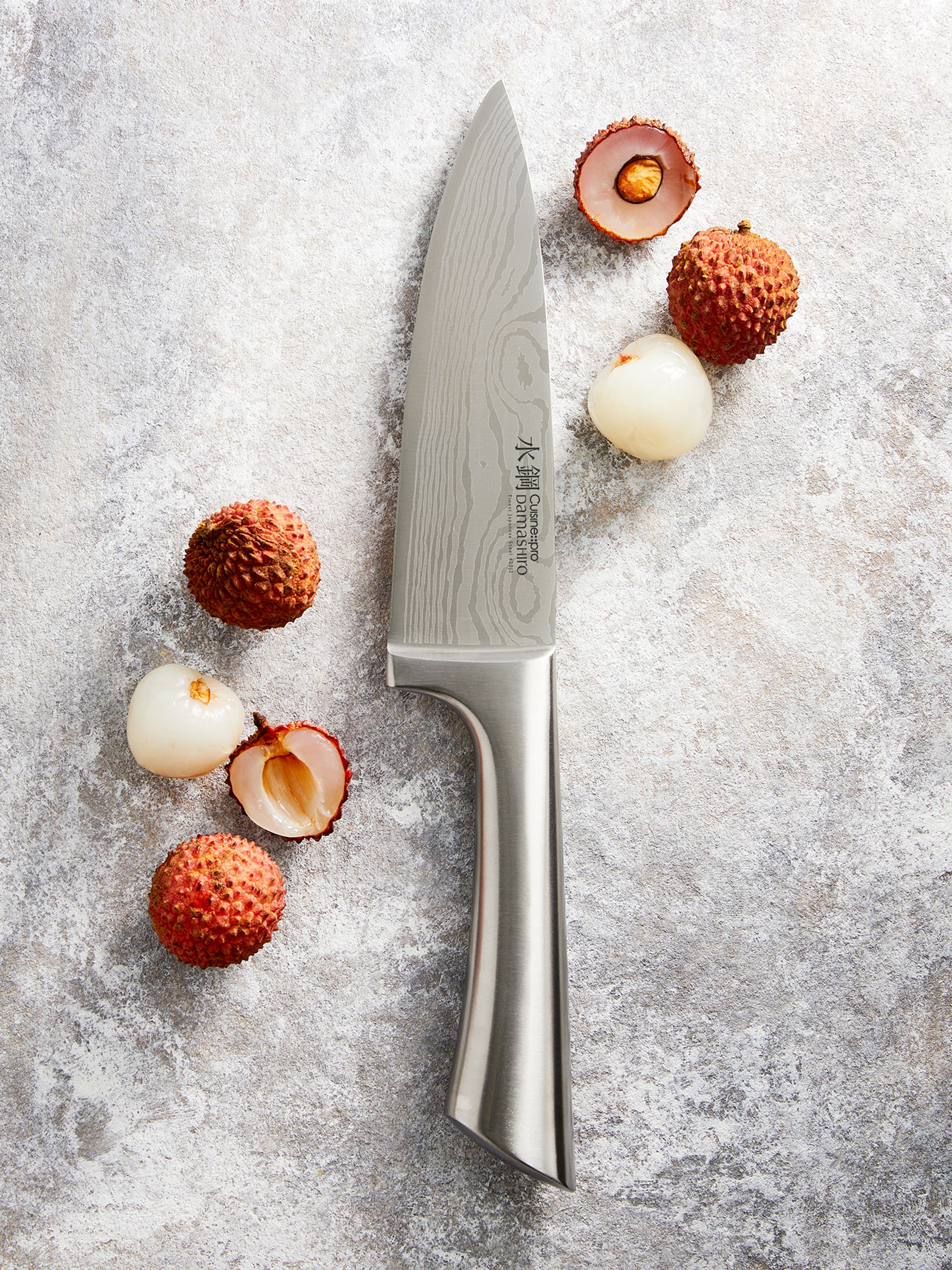
Sharpening
A sharp kitchen knife is your best and safest kitchen knife. With proper use, a sharp kitchen knife will reduce the instances of cuts and accidents as it glides through your food rather than being forced through.
Different kitchen knife styles and steel types often require different sharpening processes, however Cuisine::pro® kitchen knives are made for the universal home and professional chef and are therefore easy to sharpen using a number of techniques such as:
· Sharpening steel
· Whetstone/Sharpening stone
· Pull-through sharpener
We’ve made a selection of sharpeners in a variety of styles to suit all of our kitchen knife ranges, so your only choice should be a matter of style and preference
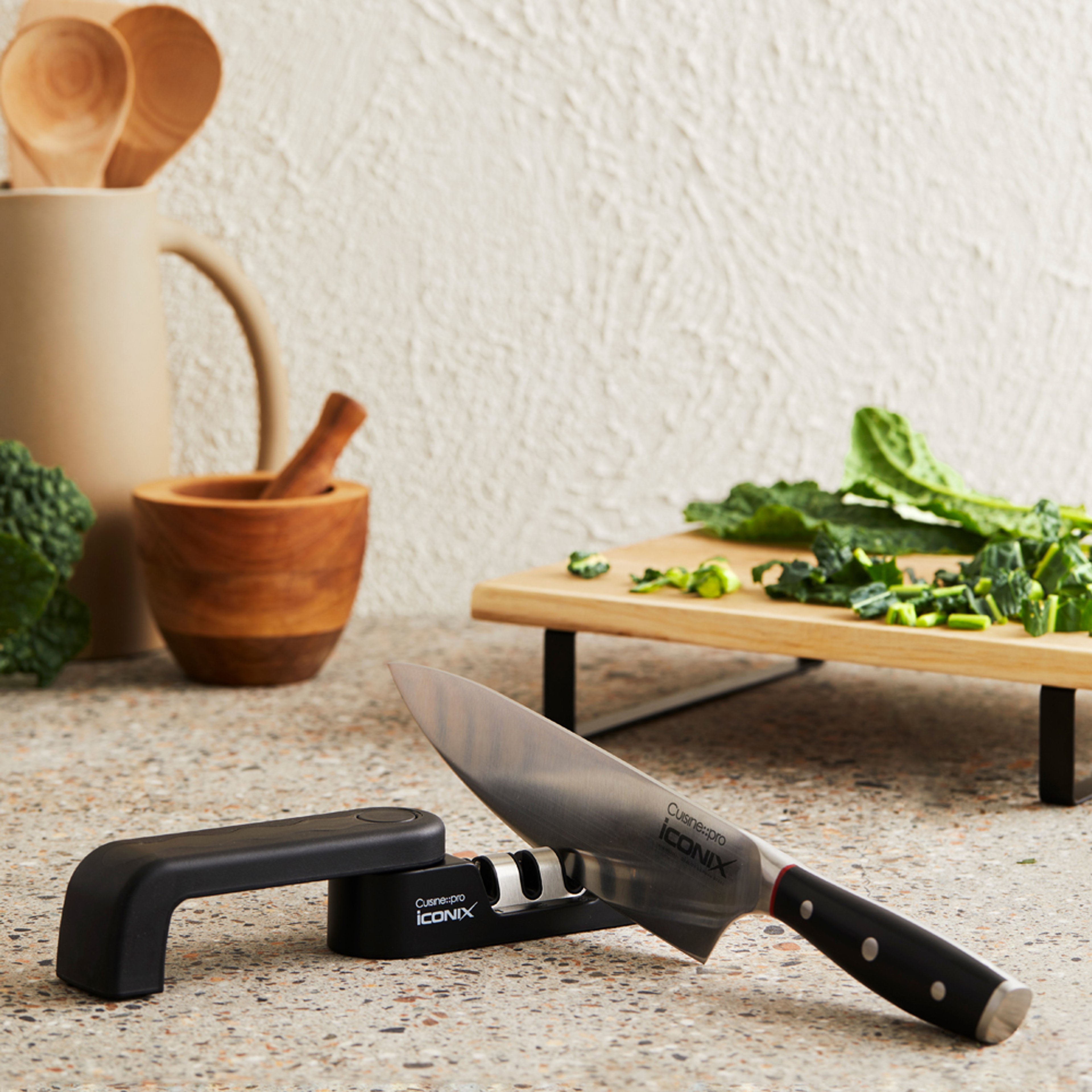
Cleaning
Like everything in your kitchen, your kitchen knives need to be cleaned properly after every use. Our kitchen knives are rust resistant, but not rust proof – don’t worry, this isn’t a product fault, it’s simply a characteristic of the metals used to give your kitchen knife its super hard edge. Cleaning your kitchen knives using these steps will help prevent rust from developing throughout use:
· Always hand wash your knives. High dishwasher temperatures and hard detergent chemicals will cause the blade and handle to deteriorate.
· After each use, wash your kitchen knife by hand under running water with a soft sponge and mild detergent if required.
· Avoid any detergents that contain any form of chlorine.
· After washing, fully dry with a clean cloth. Do not store unless fully dry.
· Never leave your knives to drip dry.
· If you cut acidic fruits and vegetables like lemons, tomatoes, oranges, etc., rinse your kitchen knife immediately. Not doing so may result in stains or corrosion on the blade.
· Water spots and surface rust can be easily removed with a soft sponge and mild detergent.
Storage
Specialized kitchen knife storage is as much about protecting your kitchen knives as it is about protecting you from injuries. Remember, your kitchen knife is sharp so handling it with care and keeping out of reach of children is important.
· Don’t store loose, unprotected individual knives in a drawer. They may bump against harder objects, causing damage to the blade.
· If storing loose kitchen knives in a drawer or cupboard, always use a protective sheath.
· Use customized kitchen knife blocks or gift boxes to keep blades protected.
· Wall-mounted magnetic storage is a great option for kitchens short on counter space.
